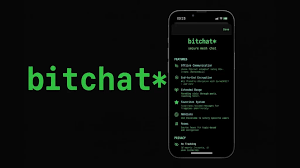Bitchat is a new experimental messaging app developed in 2025 by Jack Dorsey (co-founder of Twitter/X and Block, Inc.). Unlike WhatsApp or other mainstream messengers, it works without internet, SIM cards, or servers. Instead, it uses Bluetooth mesh networking to send encrypted messages between nearby devices.
How Does Bitchat Work?
- Bluetooth Mesh Messaging: Messages travel from one phone to another using Bluetooth, creating a network of connected devices. Range can extend up to 300+ meters depending on how many users are nearby.
- End-to-End Encryption: Strong encryption ensures chats remain private and secure.
- No Accounts Required: No phone numbers, emails, or personal details are needed. You simply choose a display name.
- Privacy Features: Password-protected chatrooms, panic mode to instantly delete chats, and even dummy messages for extra anonymity.
- No Servers: Fully decentralized; no data stored on central servers.
Can Bitchat Replace WhatsApp?
Strengths of Bitchat
- Works offline ideal during internet shutdowns, crowded events, or in censorship-prone areas.
- Provides strong privacy and anonymity.
- Immune to centralized control or censorship.
Limitations Compared to WhatsApp
- Works only when other Bitchat users are nearby, as it relies on Bluetooth.
- Very small user base compared to WhatsApp.
- Limited features currently text only, no media sharing, voice, or video calls.
- Still new and under testing; security audits are limited.
Bitchat vs WhatsApp Quick Comparison
| Feature | Bitchat Mesh | |
|---|---|---|
| Internet Required | Yes | No (Bluetooth mesh only) |
| User Identity | Phone number | Anonymous display name |
| Central Servers | Yes | No |
| Encryption | End-to-end | End-to-end with advanced privacy |
| Media Sharing | Photos, videos, voice, calls | Currently text only |
| Reach | Global, billions of users | Limited, small user base |
| Best Use Case | Everyday communication | Offline or censorship environments |
Final Awareness Note
Bitchat is not a full WhatsApp replacement, but it introduces a unique way to stay connected without internet or mobile data. It is especially useful during emergencies, remote travel, or in areas with censorship. For now, it should be seen as a backup communication tool, not a mainstream alternative.















